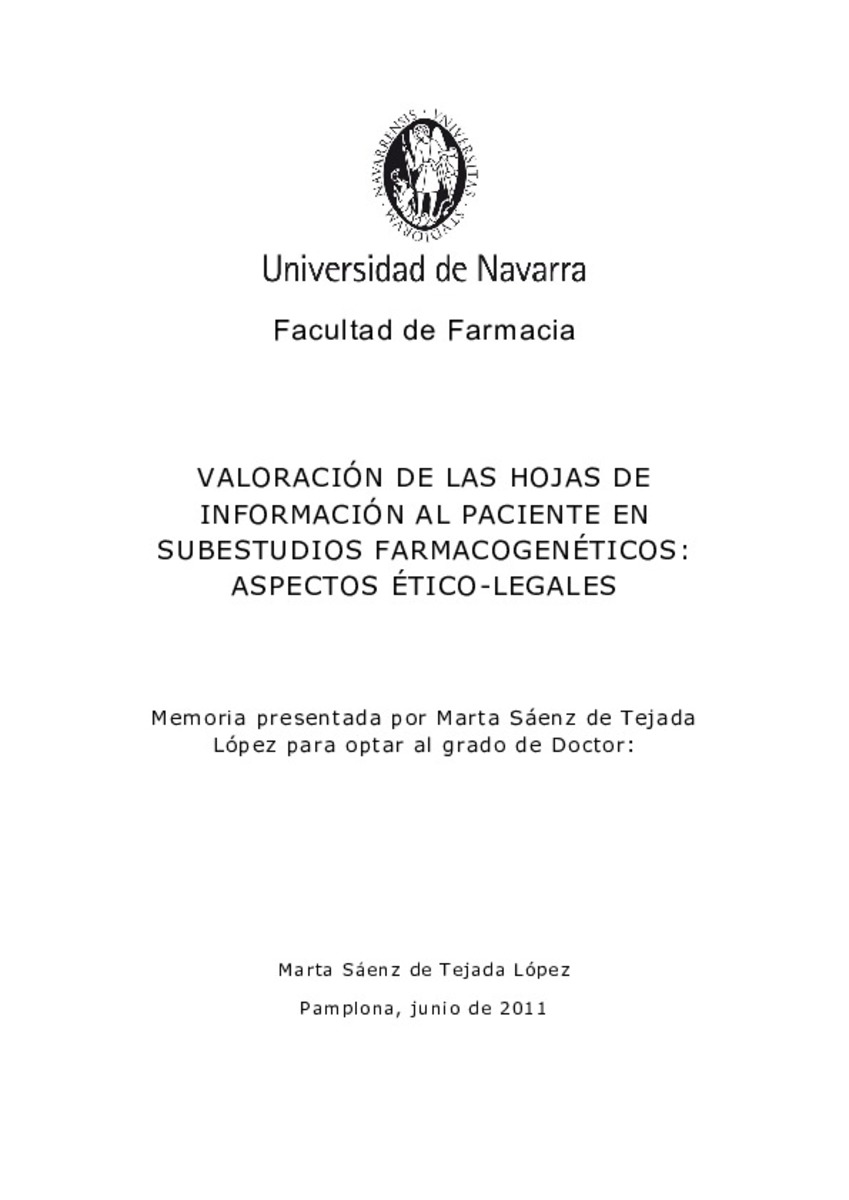Valoración de las hojas de información al paciente en subestudios farmacogenéticos: aspectos éticolegales
Keywords:
Bioethics
Biobanks
Readability
Communication of results
Pharmacogenetics
Informed consent
Publisher:
Servicio de Publicaciones de la Universidad de Navarra
Citation:
SÁENZ DE TEJADA LÓPEZ, Marta. “Valoración de las hojas de información al paciente en subestudios farmacogenéticos: aspectos éticolegales”. Ruiz-Canela López, Miguel. Tesis doctoral. Universidad de Navarra, 2011
Statistics and impact
0 citas en

0 citas en

Items in Dadun are protected by copyright, with all rights reserved, unless otherwise indicated.








